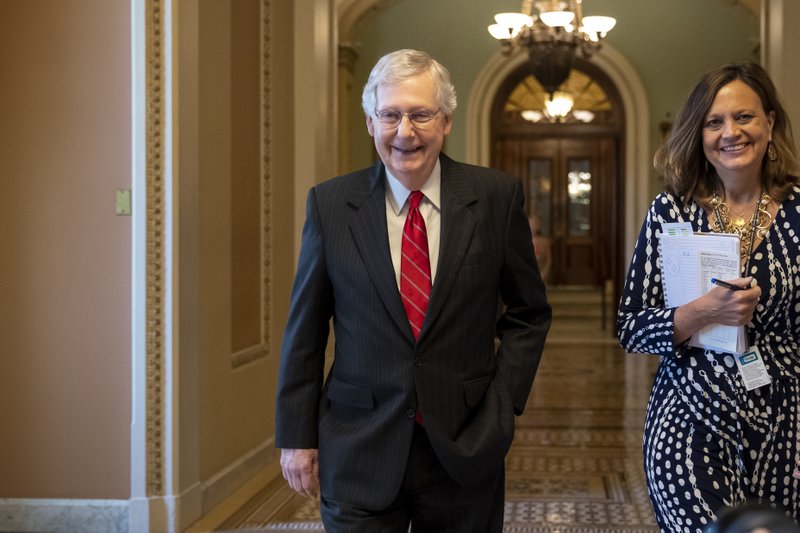WASHINGTON -- President Donald Trump on Friday signed a bipartisan debt increase and new set of spending limits that would help lock in spending increases for the Pentagon and elsewhere in the budget.
The hard-won agreement permits the government to resume borrowing to pay its bills and sets an overall $1.37 trillion limit on agency budgets approved by Congress annually. It also ends automatic spending cuts and eliminates the prospect of an October government shutdown.
The bill got through the GOP-controlled Senate, with 30 of the 53 Republican senators voting in favor. Five Democratic senators also voted "no," making the final tally 67-28. The House had already passed the bill.
The legislation was a victory for both House Speaker Nancy Pelosi, D-Calif., a lead negotiator, and top Senate Republican Mitch McConnell, R-Ky., who was the key force in favor among Capitol Hill Republicans.
"Budget Deal is phenomenal for our Great Military, our Vets, and Jobs, Jobs, Jobs!" Trump wrote on Twitter ahead of the Senate vote. "Two year deal gets us past the Election. Go for it Republicans, there is always plenty of time to CUT!"
But conservative Republicans called the measure a bad deal that permits unchecked federal borrowing for two years and pays too much into Pelosi's demands for new funds for domestic priorities sought by Democrats.
Follow-up legislation would fill in the line-by-line details of agency budgets when the Senate returns in September. Because the Senate hasn't written any of the 12 spending bills, a short-term measure extending current funding is likely for at least some government agencies.
Both parties have promised not to insist on "poison pill" provisions in the spending bills, referring to measures that would be a deal-breaker for one party.
Trump is expected to continue seeking billions of dollars for border security and wall construction.
A dispute over funding Trump's border wall led to a 35-day government shutdown at the beginning of this year. Trump ultimately signed bills without the full amount he sought for the wall and invoked executive authority to take the money from military accounts instead.
Information for this article was contributed by Erica Werner and John Wagner of The Washington Post; by Justin Sink and Erik Wasson of Bloomberg News; and by staff members of The Associated Press.
A Section on 08/03/2019
